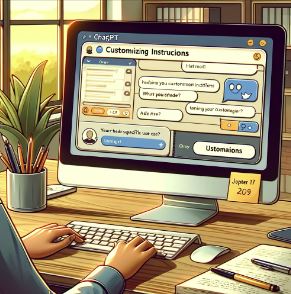 |
| Title Page by Rebecca Shamblin |
A New Year is always time to make plans and set goals. I've just completed a series on Artificial Intelligence (AI) so it has hopefully given you some ideas to boost your family history output.
Two years ago I blogged about my one month deadline to write my personal memoir. You can read about it here. I strongly believe we genealogists often neglect the importance of documenting our own lives. Sure, we know what happened but just like our ancestors who didn't leave many records, someday, someone will not be happy with you for doing the same.
Recently I was given the opportunity by author, photographer, and genealogist Rebecca Shamblin to review her new book, Leaving a Legacy: Turn Your Family Tree Into A Family Book (Life Remembered Press, 2023).
My long time readers know I'm not one to gush over the latest and greatest. I take a more middle of the road approach, looking for the pros and cons.
Seriously, I cannot find one con in this book. I can't even come up with a suggestion for improvement.
This is a must read book if you are considering publishing a family history or genealogy book. I'm an eBook author but I understand the reasons that a hard cover book would sometimes be preferred.
If you thought that the task to write your family's story was too time consuming or expensive to publish, think again! Rebecca has, through trial and tribulation, worked through the process several times and the reader can benefit from her experiences.
I strongly recommend that you purchase this book even if you aren't ready to embark on creating a book. There are so many helpful technology tips - short cuts, how to, and step by step directions that it will benefit you in other computerized tasks you need to accomplish.
I'll only give away one of the tips and it was such an Ah Ha moment for me. I don't want to get into the debate of whether footnotes or endnotes are the way to go but suffice it to say, in my opinion, there is time for one and a time for another. Recently I submitted an article for publication that required endnotes. The endnotes in Word were formatted as Roman Numerals. My goodness, did that look clunky. Rebecca provides directions on how you can turn the Roman numerals into Arabic numbers effortlessly. Wish I had known that trick before I submitted the article! Definitely read the Word Processor Settings chapter.
Rebecca uses Family Tree Maker (FTM) software. Read the chapter even if you don't use FTM as both RootsMagic and Legacy Family Tree can be used similarly to what the book describes. When in doubt, send your software company a message for help. Competition is fierce these days so it's in their best interest to help you out and keep your patronage.
My favorite part of Rebecca's book is how she handles sensitive genealogical discoveries. We all have them. One of my most sought out lectures is Skeletons in the Closet. Not sure how to write about that illegitimate child? Definitely follow Rebecca's suggestions. She even provides excerpts from her own family history books to serve as examples.
I also loved the Distribution chapter as you want your book to be available long after you're gone. Please do give a free book to your local library and if possible, to a larger library like Allen County Public Library in Ft. Wayne, Indiana - they have an entire large room that contains family genealogies. I'm not an accountant but check with yours to see if you can get a tax deduction for your donation.
To purchase a copy of Leaving a Legacy, click this link on Amazon. Let me know when you've finished your family book and where I can read a copy.






